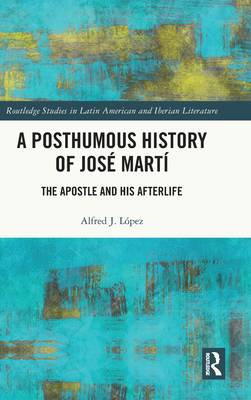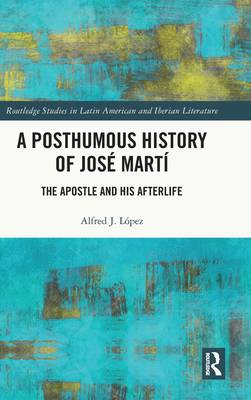
- Afhalen na 1 uur in een winkel met voorraad
- Gratis thuislevering in België vanaf € 30
- Ruim aanbod met 7 miljoen producten
- Afhalen na 1 uur in een winkel met voorraad
- Gratis thuislevering in België vanaf € 30
- Ruim aanbod met 7 miljoen producten
Omschrijving
A Posthumous History of José Martí The Apostle and His Afterlife focuses on Martí's posthumous legacy and his lasting influence on succeeding generations of Cubans on the island and abroad. Over 120 years after his death on a Cuban battlefield in 1895, Martí studies have long been the contested property of opposing sides in an ongoing ideological battle. Both the Cuban nation-state, which claims Martí as a crucial inspiration for its Marxist revolutionary government, and diasporic communities in the US who honor Martí as a figure of hope for the Cuban nation-in-exile, insist on the centrality of his words and image for their respective visions of Cuban nationhood. The book also explores more recent scholarship that has reassessed Martí's literary, cultural, and ideological value, allowing us to read him beyond the Havana-Miami axis toward engagement with a broader historical and geographical tableau. Martí has thus begun to outgrow his mutually-reinforcing cults in Cuba and the diaspora, to assume his true significance as a hemispheric and global writer and thinker.
Specificaties
Betrokkenen
- Auteur(s):
- Uitgeverij:
Inhoud
- Aantal bladzijden:
- 310
- Taal:
- Engels
- Reeks:
Eigenschappen
- Productcode (EAN):
- 9781032267166
- Verschijningsdatum:
- 16/09/2022
- Uitvoering:
- Hardcover
- Formaat:
- Genaaid
- Afmetingen:
- 152 mm x 229 mm
- Gewicht:
- 562 g

Alleen bij Standaard Boekhandel
Beoordelingen
We publiceren alleen reviews die voldoen aan de voorwaarden voor reviews. Bekijk onze voorwaarden voor reviews.











